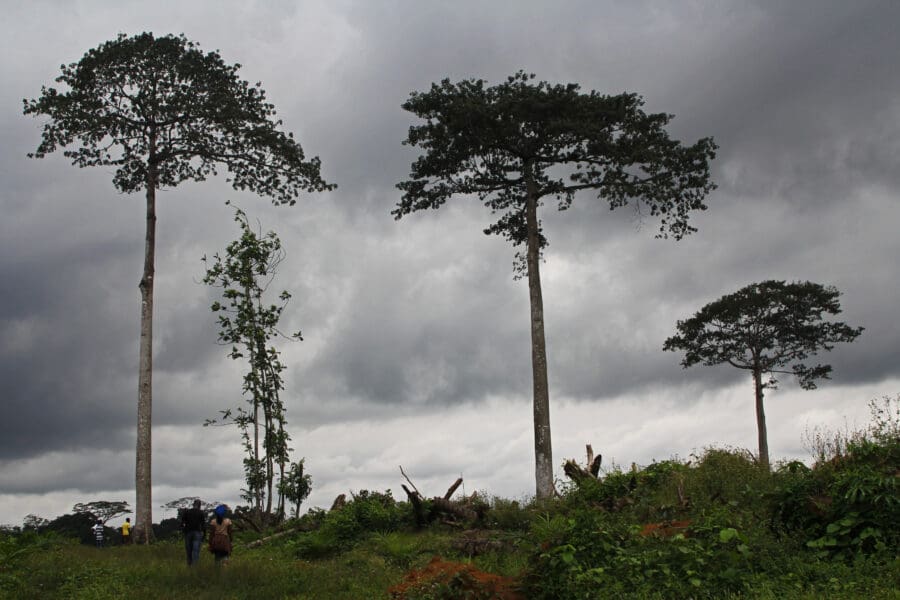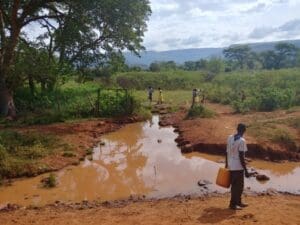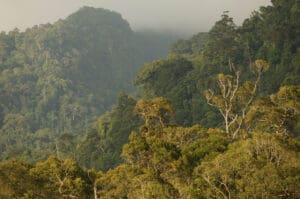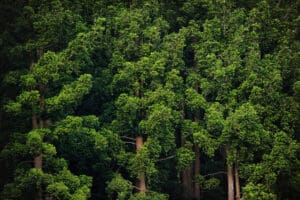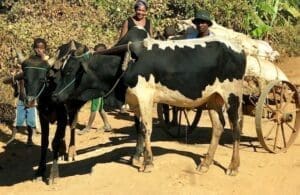Across the world, the outbreak of COVID-19 has created unprecedented challenges for RRI members and their communities. In many cases though, it has also led to opportunities for empowering local communities. This was the case for Social Entrepreneurs for Sustainable Development (SESDev), a Liberian non-profit that works on natural resource governance rights.
Right after economic lockdowns were announced in Liberia, SESDev pivoted to engage with 40 communities across the Sinoe, Grand Kru, Maryland, and Lofa Counties, with support from an RRI Strategic Response Mechanism. At the core of their engagement with communities was scaling up of awareness about COVID-19 so these vulnerable communities could protect themselves using locally available resources. SESDev worked in collaboration with the Ministry of Health and the National Public Health Institute of Liberia to design messages that would be easily understood by communities. The organization also obtained accreditation to travel to communities under the government’s travel restrictions.
SESDev used this partnership to not just communicate with communities about protecting their health, but also their collective land rights, the organization’s core area of expertise. These efforts helped SESDev gain more trust within the communities as they continue to advocate for national recognition of community land rights In Liberia.
Times of social upheaval can be a conducive environment for conspiracy theories, as has been demonstrated globally during this outbreak. SESDev’s team encountered many misconceptions about COVID-19, such as the virus being man-made, or that it’s spread through sexual intercourse, or that it was nothing new as signs and symptoms of this disease have been around since time immemorial. It was also believed that contagious people from Monrovia were deliberately visiting rural communities to spread it, which made distribution of awareness materials like flyers and posters difficult for SESDev’s team members traveling from Monrovia.
SESDev applied a variety of strategies to navigate this terrain, including requesting the support of elders and chiefs who wield influence in their communities. In addition, they stepped up dissemination of official government statistics to legitimize their awareness-raising efforts. Some efforts equated the COVID- 19 outbreak to that of Ebola in 2014 and made appeals to wash their hands frequently. SESDev showed people examples of how they could improvise hand washing buckets with locally available materials.
“Most of the communities embraced the idea, demonstrating that the key to sustainability is to allow local communities to own any intervention,” noted SESDev Coordinator Daniel Krakue.

Tracking land rights violations during the lockdown
Covid-19 and lockdowns also brought threats to implementing community land rights in Liberia, especially as extractive industries were designated as essential businesses and allowed to continue operation. Civil society organizations (CSOs) were not considered essential, so they were banned from travel to rural areas to assist communities in monitoring their lands. Civil society operations were also halted by restrictions on on-person meetings, making it difficult for CSOs to actively operate.
In this environment, SESDev’s registration with the Ministry of Health and partnering in spreading pandemic awareness became an opportunity to check on community land rights and provide a remote process to technical assistance through an Early Warning Response Mechanism.
Originally developed to assist with community land monitoring during the Ebola outbreak, this mechanism allowed community members to call SESDev through a dedicated hotline to report threats to their land rights and to get counseling and other support in responding to those threats. During this period, seven land-related issues from Sinoe, Grand Kru, and Maryland Counties were reported to SESDev, which promptly provided technical advisory support to the communities and continues to conduct follow ups.
In one example, communities in Sinoe County reported an investor who wanted to establish a cassava farm on community land during the COVID-19 lockdown and state of emergency period. Through SESDev’s timely support, the community was successfully able to bring this process to a halt. In another case in Grand Kru County, communities were able to negotiate for payment for gold mining activities on their territory.
Through its innovative Early Response Mechanism, SESDev demonstrated that it’s possible for community activists and organizations in Liberia to simultaneously address immediate community needs as well as work toward a long-term vision of collective land sovereignty. It also illustrated the inspiring resilience and creativity of RRI Coalition members on the ground, which continues to challenge the difficult circumstances they already operate in and the new threats posed by an unprecedented pandemic.
Shannon Johnson and Patrick Kipalu also contributed to this blog post. For more information on SESDev’s efforts, please contact Daniel Krakue.
Read about RRI’s Strategic Response Mechanism, which supported this effort, here.
Click here to help us share this story on Twitter.

